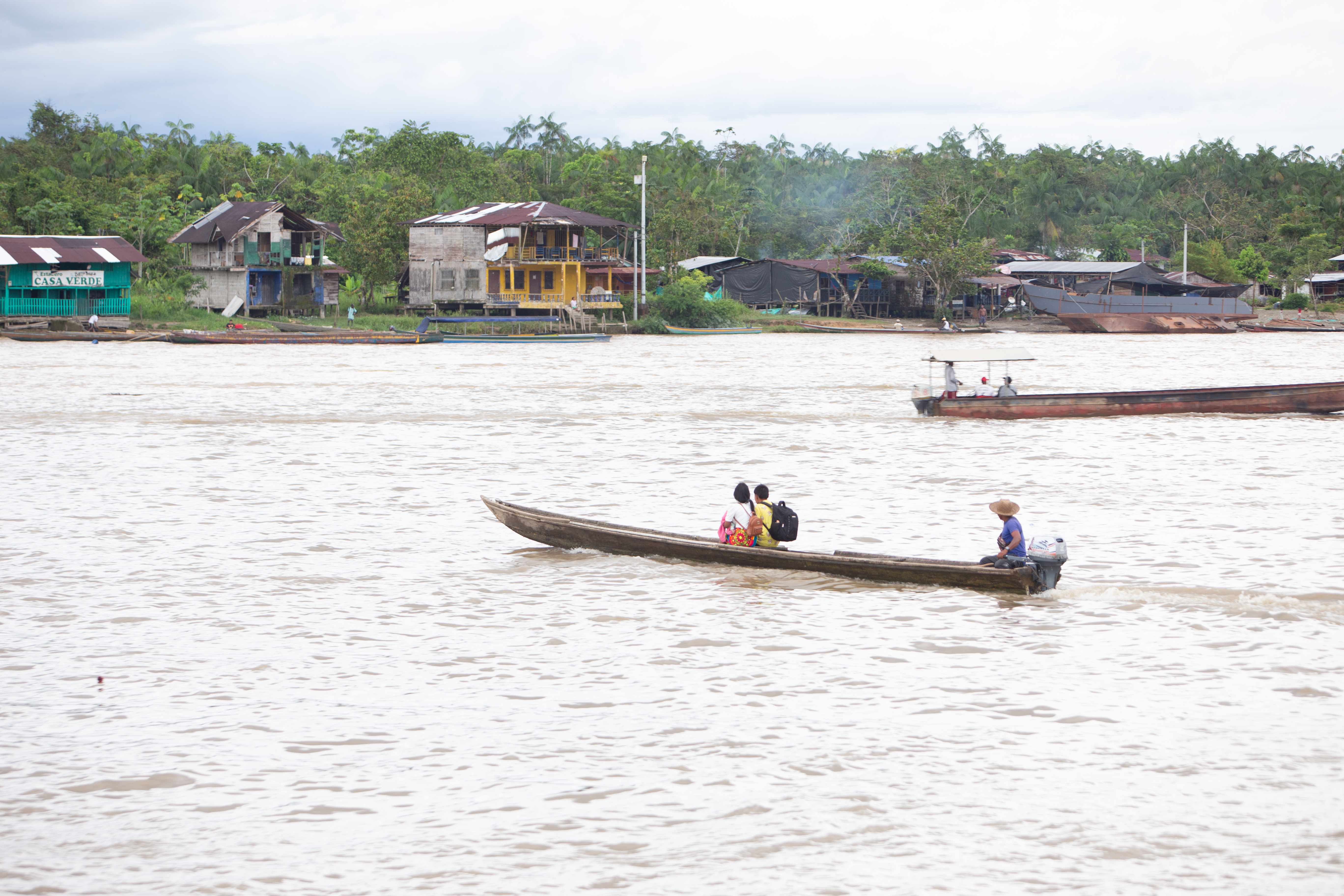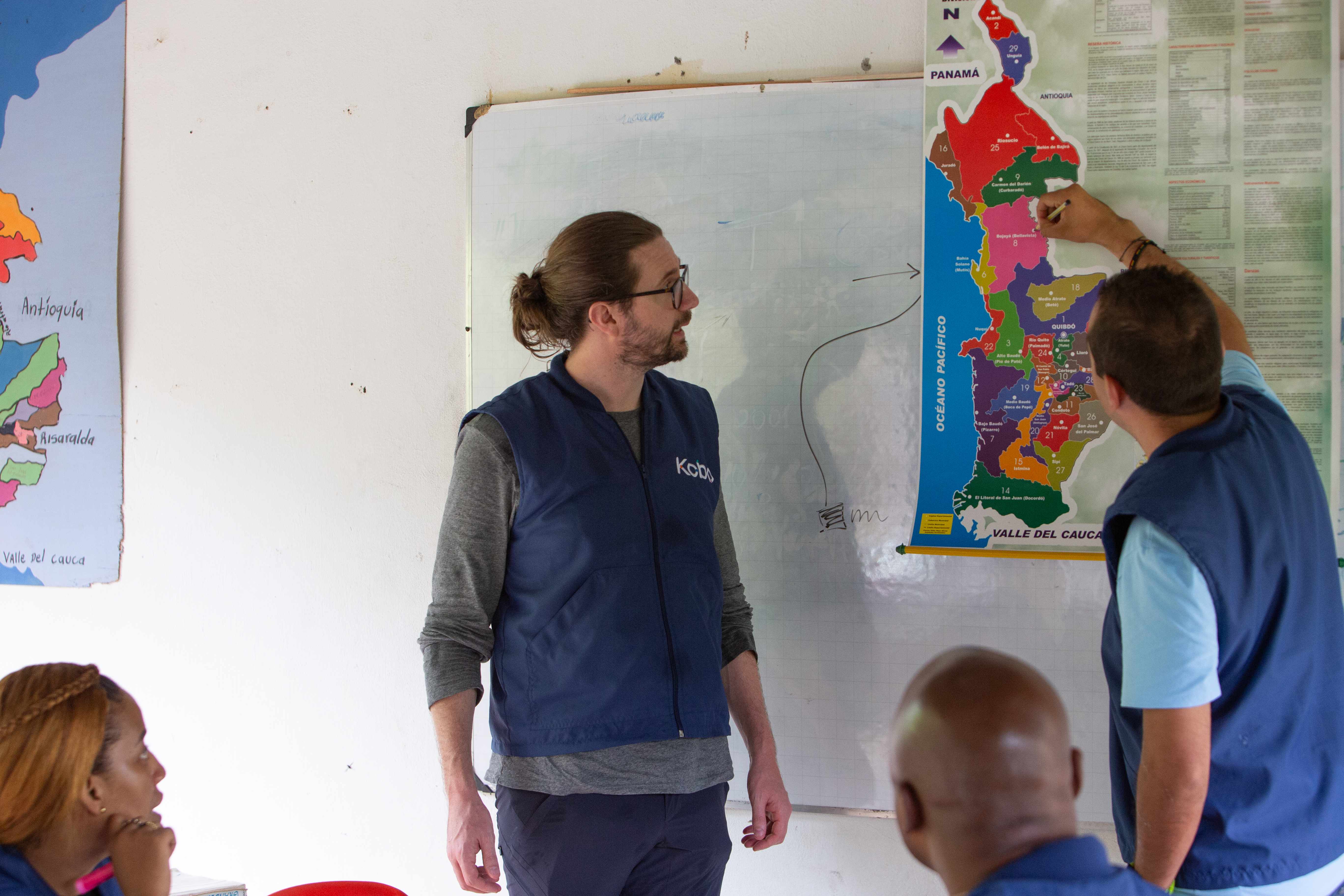Beyond the technology
Safeguarding teachers and students with on-the-ground research: How Kobo is documenting attacks on education in rural Colombia
In conflict-affected communities in Colombia, hundreds of attacks on students, teachers, and schools have been reported since 2022, according to the Global Coalition to Protect Education from Attack (GCPEA). To gather crucial data for efforts to protect education, Kobo is leading a research initiative in four of the country’s most impacted regions. Working hand-in-hand with local partners and communities, the project team used a comprehensive survey to collect detailed information about attacks on education and identify insights from over 800 teachers to better prevent and respond to attacks. These efforts are vital to safeguarding education—a fundamental right for children and a key building block for sustainable peace.

Despite the 2016 Peace Agreement and ongoing ceasefire negotiations, conflict violence in rural areas of Colombia continues to place students and teachers at risk. Shootouts and explosives near schools, threats against teachers, occupation of school buildings by armed actors, and forced child recruitment along school routes remain widespread. These attacks cause death, injuries, damage to schools, and severe disruptions to learning, with disproportionate effects on Afro-Colombian and Indigenous communities. However, significant efforts are being made to better protect education. Colombia’s endorsement of the Safe Schools Declaration in 2022 was an important step towards ensuring the continuity of learning and underscores the country’s commitment to safeguarding education.
Combining rigorous data collection and deep local engagement, Kobo’s research initiative focused on several of Colombia’s regions most affected by attacks on education: Antioquia, Chocó, Nariño, and Norte de Santander. Despite significant challenges in accessibility—often requiring hours of travel by land or river—the dedication and contextual knowledge of the on-the-ground team allowed the project to reach some of the most remote and underserved areas. This approach demonstrates that research is not only possible in hard-to-reach areas, but is strengthened by a design grounded in community insight and local realities—which are critical for ethical, inclusive, and locally relevant initiatives to protect education.

During project planning, Kobo worked with key partners to ensure the research was locally grounded. Kobo’s Head of Research Dr. Jerome Marston and Technical Support Specialist Paula Alarcón met with the Ministry of Education, the Coalition against the involvement of children and young people in armed conflict (COALICO), the Education Cluster, and other local stakeholders in Bogotá to share information about the project, gather feedback, and contextualize research tools. Kobo’s partnership with Corporación Infancia y Desarrollo (LA CID), a local childhood development, education, and protection organization, was central to our efforts to ensure that the research approach, implementation, and data collection were locally engaged and grounded in ethical best practices.
Building on this foundation, Kobo and LA CID selected a team of 10 interviewers from affected communities where field data collection would take place. The local interviewers traveled to Bogotá for a week-long training led by Kobo and LA CID on survey best practices, ethics and safety protocols, and critical background about attacks on education, including key definitions and patterns. Based in Colombia, Kobo’s Technical Support Specialist Paula Alarcón delivered key training and ongoing support during data collection.

To document attacks on education, the research team traveled to remote areas to speak with teachers about attacks and the impact of conflict violence on students, teachers, and schools. Working with interviewers from affected communities was essential to this process, as this ensured the safety of both teachers and the research team and that participants were comfortable discussing sensitive topics. The team took extensive measures to ensure the safety of research participants, including consulting community leaders, inviting interviewees to select meeting locations, and implementing best practices for securely recording and storing data.
Using KoboCollect’s offline capabilities, the team captured detailed qualitative and quantitative data. Across more than 500 schools, over 800 head teachers shared detailed accounts of attacks, their impacts, and the measures and safeguards they would like to see developed to better protect schools. The audio recording feature of KoboCollect allowed teachers to respond to questions in their own words, capturing nuance and important qualitative insights, including the perspectives of Indigenous, Afro-Colombian, and women teachers—whose perspectives are often missed in traditional data collection but vital to understanding the local context and multifaceted effects of attacks.
Throughout field data collection, Kobo’s Head of Research Dr. Jerome Marston provided support for the interview team based in Chocó, a predominantly Afro-Colombian region traversed by the immense Atrato River. The team traveled by boat and on foot to remote villages to speak with teachers, where Dr. Marston observed the interviews, provided technical support for the interviewers, and shared methodological guidance.

Centering teachers’ wellbeing, the research project integrated mental health and anti-stress components. LA CID facilitated stress relief sessions, which included group conversations, journaling, creative exercises, and practical self-care strategies. Special safeguards were also taken to limit teachers’ risk of retraumatization during interviews, including local partners reviewing interview questions and the project undergoing external ethical review.
With support from the Education Above All Foundation, this project combines rigorous research methodologies and deep local engagement. The data and findings from the study will be published on the Track Attacks on Education (TRACE) Data Portal, accompanied by a report outlining key trends and a methodological guide for future research. Most importantly, sharing the Colombia data on the TRACE Portal will help to amplify the voices of teachers, highlighting their firsthand experiences and recommendations for how to prevent and respond to attacks on education.
Learn more about how Kobo and TRACE are helping to protect education worldwide.